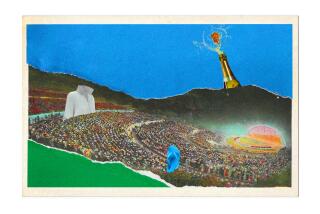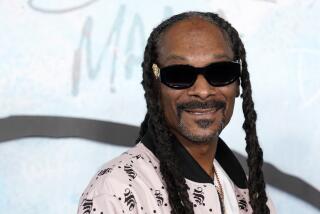Pro Bowl: Anachronism on Trade Winds
- Share via
So, upon advice of his healer, Joe Montana is ducking Sunday’s Pro Bowl in Honolulu.
Voted most valuable creature in the recent Super Bowl, showcase of football, Joe is the entertainer capturing the fancy most of your Pro Bowl connoisseur.
But one must not row into the tide of medical advice, especially if the stakes in Honolulu are small, and one is caught in the press of detail, such as walking the dog.
Montana has been suffering with a sore elbow for weeks. His condition deteriorated in the playoffs to where he could lick Minnesota by only 41-13.
The following week, the Rams got to him. They held down the score to 30-3.
And, of course, Joe’s debilitation was obvious in the Super Bowl. He could conjure up but five touchdowns against Denver, disappointing, considering San Francisco scored eight.
The National Football League is reaching that point where, with no arguments from the public, it can bid aloha to the Pro Bowl, a bit of a joke since its inception.
Conceived in 1951 in Los Angeles, the Pro Bowl was played in this celestial paradise for 21 years under the sponsorship of local newspapers, earmarking profits for charity.
The NFL owners would then ask themselves, “What charity worthier than we?”
And they would remove the game from the L. A. newspapers and float it, testing waters under their own sponsorship in spots such as Dallas, Kansas City, Seattle and Tampa.
When they drew but 26,000 in Miami and 32,000 in New Orleans, a thought beautifully larcenous occurred. Why not link the Pro Bowl to the local season-ticket package, making the purchase involuntary for consumers in the city hosting the game?
Local fans hollered blackjack. Lawsuits were threatened and a fear developed that season-ticket sales might be damaged if fans resisted the mandatory Pro Bowl purchase.
At that point, from the blue Pacific, Hawaii called. And, on the trade winds, the game blew into Honolulu.
Failing there, the NFL figured it could continue west to Hong Kong, where the principals could be measured for a 100% worsted.
In Hawaii, it was asked in the beginning, what time would you start your game in order for network television to maximize the viewing audience? TV decided on 11 a.m., which is 4 p.m. in Jersey City.
This led to two problems. First, a local minister threatened to take the game to court, arguing that an 11 a.m. kickoff on Sunday in Honolulu disrupted church services. He asked that the game begin at the more conventional hour of 1 p.m., not aware it was God’s will that television start it at 11.
A realistic compromise would have been to hold church services at the stadium, where the NFL would pass the plate and keep the home share of 60%.
But the complaint was dropped, paving the way for the 11 o’clock kickoff, creating an eating problem for the players, asked to take their pregame meal at 7 a.m.
We ran into Brian Sipe, then Cleveland quarterback voted into the Pro Bowl, who was trying at the hotel to order spaghetti, adhering to the popular carbohydrate buildup.
“We don’t serve spaghetti at this hour,” Brian was told.
He offered to take it any way--marinara, carbonara or Bolognese, but, rejected, settled for pancakes, grumbling that the first requirement of a city’s bidding for the Pro Bowl should be the capability to serve pasta around the clock.
Today, network television has given up on the Pro Bowl, leaving the game to cable, which shifts kickoff locally to the more convenient hour of 3 in the afternoon.
At that time of day, a player not only can find spaghetti, but fettuccine Alfredo.
In the Pro Bowl itself, special rules are imposed, governing the way the defense can rush. The teams work out maybe an hour a day. Coaches avoid asking on what path their forces embark at night.
And what one views is a sort of makeshift affair, suggesting a baseball game in spring training.
In Honolulu, feelings on the game are divided. Some locals like to look at the Joe Montanas, provided they appear. Others think the game is another substitute tossed Hawaii, deprived of big league American pro sports, such as football, baseball and basketball.
The attitude in Hawaii long has been, “Owners feel this is a great place to hold winter meetings, but no place for a franchise.”
So how does it differ from North Dakota?
The difference is, North Dakota is no great place to hold winter meetings.
More to Read
Go beyond the scoreboard
Get the latest on L.A.'s teams in the daily Sports Report newsletter.
You may occasionally receive promotional content from the Los Angeles Times.










